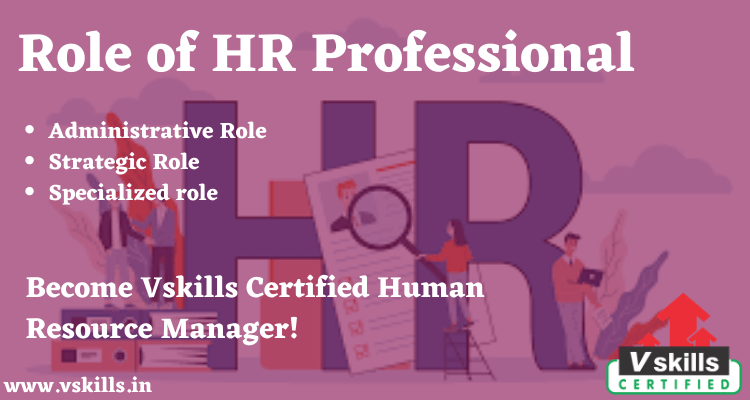The role of HR professionals is to support the organization in achieving its goals by managing its human resources effectively. Some of the key responsibilities of HR professionals include:
- Recruitment and selection: HR professionals are responsible for identifying and attracting suitable candidates for the organization. They develop job descriptions, post job vacancies, and screen resumes to find suitable candidates. They also conduct interviews, background checks, and reference checks to ensure that the candidates have the required skills and experience.
- Training and development: HR professionals identify the training needs of employees and develop training programs to improve their skills and knowledge. They also facilitate employee development programs and support career development.
- Performance management: HR professionals develop performance appraisal systems and ensure that they are fair, objective, and effective. They also manage employee performance, provide feedback, and address performance issues.
- Compensation and benefits: HR professionals develop compensation and benefits policies that are competitive, fair, and aligned with the organization’s goals. They also manage payroll, administer benefits programs, and ensure compliance with labor laws.
- Employee relations: HR professionals manage employee relations by developing policies and procedures that promote a positive work environment, resolving conflicts, and addressing employee grievances. They also provide guidance and support to managers and employees on employment-related issues.
- Compliance: HR professionals ensure that the organization complies with labor laws, regulations, and policies. They also develop and implement policies and procedures to ensure that the organization operates within legal and ethical boundaries.
Overall, the role of HR professionals is to support the organization’s strategic goals by managing its human resources effectively and efficiently.
Types of Role of HR Professional
HRP professionals have to perform the following roles that may be divided into three categories:
Administrative Role
- Managing the organizational resources
- Employees welfare activities
Strategic Role
- Formulating HR strategies
- Managing relationships with managers
Specialized role
- Collecting and analyzing data
- Designing and applying forecasting systems
- Managing career development
These roles are neither necessarily found in every HRP work, nor they are evenly weighed in time allocation. Many combinations of roles are possible with different focuses based on circumstances of the organisation. The first two roles managing relationships with managers and for mutating strategies are weighted equally. The activities in these areas are equally important to HRP because of the implicit purposes of anticipating and implementing change in the organisation.
The strategic roles are crucial to the HR professional’s effectiveness. These skills are very difficult to develop when compared to administrative skills. The administrative aspects of the work are represented in managing the staff function of HRP and in managing employee welfare activities. These aspects are often seen as supplementary to other aspects and demand a lot of attention. The remaining three roles represent specialized functions performed. Primary attention is given to a combination of three categories of activities – collecting and analyzing data, deisgning and applying forecasting systems and managing career development. These activities are new to the HR function in many organisations, and are closely linked with the mission of anticipating and managing change. Accordingly, they are viewed as the central roles of HRP Professionals.
Practice Questions
Q1. What is the role of HR professionals in recruitment and selection?
A) Developing compensation and benefits policies
B) Identifying and attracting suitable candidates for the organization
C) Managing employee relations
D) Ensuring compliance with labor laws
Correct Answer: B) Identifying and attracting suitable candidates for the organization
Q2. What is the role of HR professionals in training and development?
A) Developing performance appraisal systems
B) Administering benefits programs
C) Identifying the training needs of employees
D) Resolving employee grievances
Correct Answer: C) Identifying the training needs of employees
Q3. What is the role of HR professionals in compensation and benefits?
A) Developing policies and procedures to ensure compliance with labor laws
B) Managing employee performance
C) Administering benefits programs
D) Developing compensation and benefits policies
Correct Answer: D) Developing compensation and benefits policies
Q4. What is the role of HR professionals in employee relations?
A) Identifying and attracting suitable candidates for the organization
B) Managing employee performance
C) Resolving employee grievances
D) Developing performance appraisal systems
Correct Answer: C) Resolving employee grievances
Q5. What is the role of HR professionals in compliance?
A) Managing employee relations
B) Developing compensation and benefits policies
C) Ensuring compliance with labor laws
D) Identifying the training needs of employees
Correct Answer: C) Ensuring compliance with labor laws



